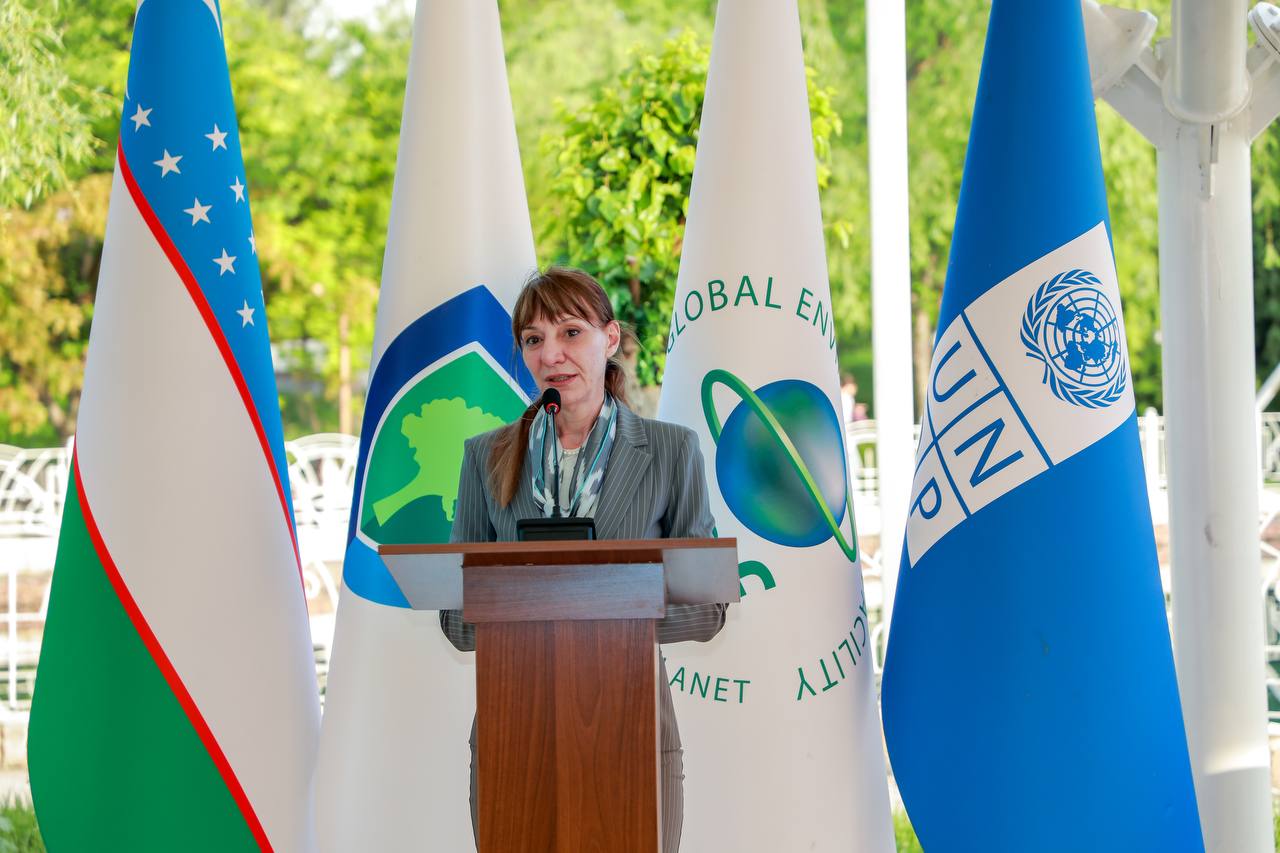
The Government portal of the
Republic of Uzbekistan
Uzbekistan supports the UN global biodiversity program
2023-04-13 | Ecology
On April 12, 2023, the project "Global Framework Program - Supporting Early Actions" was launched in Tashkent.

This initiative is a new joint project of the Ministry of Natural Resources of the Republic of Uzbekistan and the United Nations Development Program (UNDP), funded by the Global Environment Facility (GEF).
On December 19, 2022, 190 countries reached agreement on the Kunming-Montreal Global Biodiversity Framework (GBF). This historic framework sets out an ambitious path to achieve a global vision of a world living in harmony with nature by 2050. Among the key elements of the Framework are 4 goals for 2050 and 23 targets for 2030. The program provides a good basis for global action on biodiversity, complementing the Paris Climate Agreement, paving the way for a climate-neutral, nature-positive and sustainable world by 2050.
"Uzbekistan takes a proactive stance on global integration issues, seeks to support measures and make a significant contribution to the implementation of an ambitious plan for the implementation of large-scale actions aimed at transforming the relationship of our societies with biodiversity and nature," Minister of Natural Resources Aziz Abdukhakimov said.
By adopting the Kunming-Montreal Global Biodiversity Framework, Uzbekistan, like many other countries in the world, committed to setting its national targets for its implementation. The launched project will support the government of Uzbekistan in revising the National Biodiversity Strategy and Action Plan, as well as related policy, monitoring and financing of nature protection in such a way that they are consistent with the agenda of the global biodiversity conservation program.
Action Plan to ensure the conservation and sustainable use of biodiversity:
-improvement of the regulatory framework;
-improving the maintenance of the state cadastre and monitoring of objects of flora and fauna;
-improvement of modern scientific information on the state and importance of biodiversity, necessary for the formation of policy and decision-making;
-implementation of measures to restore rare and endangered species of animals and plants;
strengthening control over the illegal use of objects of the animal and plant world;
-development of the system of protected natural areas (PA) and ecological tourism;
- Increasing the level of awareness and ecological culture of the population.
UNDP Resident Representative in Uzbekistan Matilda Dimovska, in her welcoming speech, emphasized: "Not only do many people's livelihoods depend on natural resources and their management, but also the loss of biodiversity and ecosystem services can lead to increased costs, increased risks and reduced economic performance. We are already seeing this in the drying up of the Aral Sea or more frequent dust storms across the country, so the need for fast action is clear!"
The biodiversity of Uzbekistan includes more than 27,000 species: 14,900 species of invertebrates, 715 species of vertebrates, 107 species of mammals, 467 species of birds, 61 species of reptiles, 3 species of amphibians, 77 species of fish, 11,000 species of plants, fungi, algae, 4,300 species of higher wild plants , of which 8% are endemic species. The Red Book of the Republic of Uzbekistan (2019) includes 206 animal species and 314 plant species.
Some of the major global goals include restoring 30% of degraded ecosystems worldwide by 2030, halting the extinction of known species and reducing the risk and rate of extinction by 10 times for all species by 2050, reducing the risk from pesticides by at least 50% by 2030, sustainable management of agricultural, fisheries and forest areas and a significant expansion of agroecology and other practices that are favorable to biodiversity. The full list of goals can be found at the link.
Over the next two years, the project will collaborate with various groups of national and international stakeholders, including line ministries, departments, academia and academia, NGOs to accelerate readiness and early action to implement post-2020 biodiversity priorities and align national targets, monitoring, policy and financial framework with the Global Biodiversity Framework.
Source: Ministry of Ecology, environmental protection and climate change of the Republic of Uzbekistan









